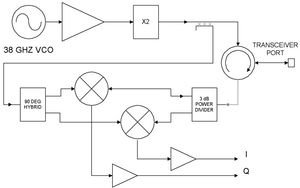In English, many of the words beginning with D seem to be tinged with a thrilling emotional or sensational intensity. Daring, dangerous, daunting, dreadful, delectable, delicious, distressed, devastated, devilish, diabolical, drenched, dribbling, devouring, disgusting, dramatic, dastardly, desirable, dire, dingy, deplorable, deadly, dominatrix, destroyer, drugs, duels, doomed, dirty dancing …. Is it any coincidence, then, that a girl’s best friend begins with D? Come on over to the dark side. How about a dalliance with Dracula? (the latter being adapted from Romanian). You get the drift.
So, do the D words have the same flavour in the five Romance languages? Let’s take a quick look, flicking through the dictionaries at random to find something appealing….
ROMANIAN: dragoste. Well, you can’t deny you learn all the crucial words here at My Five Romances. It means love, and thus a face dragoste means to make love. The related adjective is drăgăstos/drăgăstoasă, meaning loving, affectionate, amorous.
PORTUGUESE: uma donzela-de-candeiro. The old-fashioned meaning of this is a table or bench on which a night light is placed. This is not why it tickled my fancy, though. What I really like about this is that in Brazilian usage it has come to mean a woman who pretends to be a virgin. I wonder how many donzelas there are in Brazil nowadays. And whom do they think they are fooling? Clearly they are not pretending very well. Is there a male equivalent? Brazilians should at least come up with a word or expression to describe young men who pretend they are experienced lovers but in fact are still virgins. How about something like “a matchstick still in the box”?
SPANISH: despreocuparse This means to stop worrying, which is something people should do more of. I like how Spanish has one word for this, whereas English has to use three. (Maybe the modern English equivalent would be chill as a verb). Another interesting thing about this word, by the way, is that it ends in “arse”. Just pointing it out, that’s all.
FRENCH: disjoncter. This means to trip, fuse, short-circuit, as in the electrical sense, but it has been adapted to great effect into modern argot to mean to trip out, to go off one’s head, lose one’s head, to crack up, to go off at a tangent. We have all disjoncted at some stages in our lives, methinks, particularly on Friday and Saturday nights in our youth.
ITALIAN: dopotutto. This is a great-sounding word meaning after all. You should use it liberally when speaking Italian. Just say “Dopotutto, ….” followed by some really thoughtful or philosophical observation, or even a platitude, and people will wonder at your great intelligence and power of conversation. Words like these are useful, too, as they signal that you are going to keep talking and everyone else has to listen, which is the whole point of having a conversation really.


